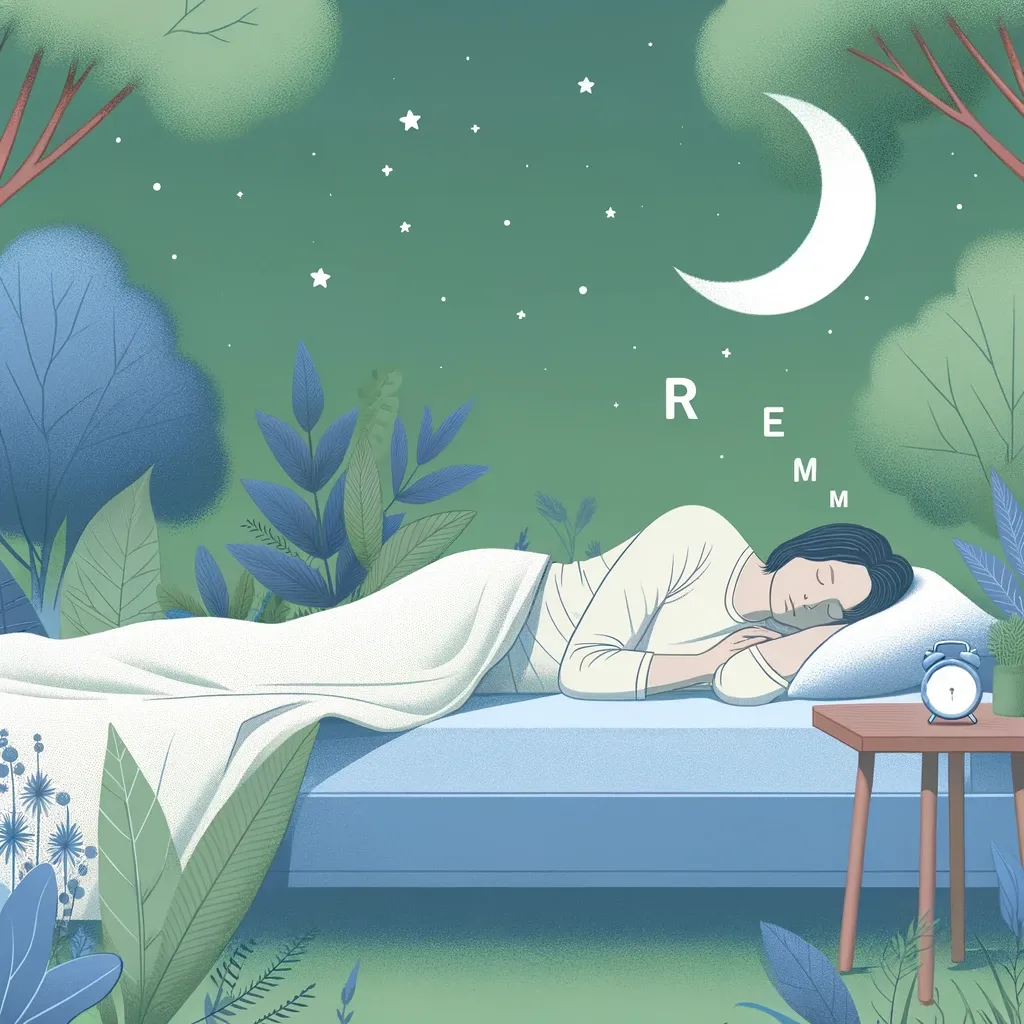Our sleep is divided into different phases, which go in cycles as we sleep. REM (which stands for Rapid eye movement) is the fourth out of four total stages of sleep, and is the phase where most dreaming occurs, but it also plays an important role in memory consolidation, brain development and emotional processing. Quite a significant role!
What Happens During REM Sleep?
What mainly differentiates REM with other sleep phases is the amount of activity in the brain and the numerous physiological changes that occur in the body. When in REM sleep, your eyes may jerk rapidly behind closed lids, and there is an increased rate of your heartbeat and irregular breathing patterns, compared to the other sleep phases where your brain waves slow down.
During REM sleep, the body functions much as it would when one is awake, with a few exceptions: the eyes are closed, and there’s a temporary paralysis of most voluntary muscles (muscle atonia) ,preventing the person from acting out their dreams. This mechanism is crucial for safety, as it helps prevent potential injuries that could occur if one were to physically react to the dream content. After all, the brain is in active state, simulating and imagining a life within itself, we have named: dreaming!
When Does REM Sleep Occur?
The first cycle of REM sleep occurs about 60 to 90 minutes after you fall asleep. If you get a full night’s sleep, you will usually cycles through the four stages of sleep 3 to 4 times. It’s interesting to note that at every cycle, the time you spend in the REM cycle increases. So the longer your sleep, the increasingly more REM sleep you will get, getting all the advantages of REM, and the more chances of having and remembering a dream you have.
The Importance of REM Sleep
We’ve seen that REM sleep is characterised by (and named after) the rapid eye movement that occurs during its phase. But the rapid eye movement is just a marker of something deeper and more significant that is happening in our brains—dreaming! When we’re deep in a dream, our eyes dart around rapidly, not because they’re just moving randomly, but because they’re following the action in our dreams, just like they would if we were watching a movie or observing something while awake.
But why is dreaming so important? Researchers have been pondering this question for years and have come up with various theories. One of the key insights they’ve discovered is the connection between dreaming and memory consolidation. This link suggests that dreams play a pivotal role in helping us store and process information we’ve learned throughout the day.
This is valid for memory about new learnings, motor skills, but also, and most importantly, emotional memory and emotional processing. REM is crucial for processing emotional experiences, helping us integrate and understand our feelings more effectively.
Skipping on sleep, or specifically on dream-rich REM sleep, can hinder your ability to remember what you’ve learned, and doesn’t allow your brain to process emotions in the way it needs to be healthy.
Studies on animals have shown that being completely deprived of REM sleep can lead to death. While it’s unclear if this would hold true for humans—and conducting such a study would be unethical—it underscores the vital role REM sleep plays in our overall health.
We can easily see how important REM sleep is for a functioning human, and how inadequate REM sleep can be detrimental to your well-being on the long term. Good REM sleep is especially important in our case, as it’s the phase where we dream the most, and so nurturing a good REM sleep will help with dream recall, and therefore more detailed dreams, and more lucid dreams!
How to Improve REM sleep
- Stick to a consistent sleep schedule. Going to bed and waking up roughly at the same time every night is a good way to ensure your sleep cycles don’t get disrupted and you get enough of your REM sleep. Irregular sleep schedules are confusing for new internal clocks and for your body, which is known to lead to various issues that can impact your mental and physical health, including diabetes, heart failure, and depression.
- Be careful about your substance intake before bedtime. This includes caffeine, alcohol, and sugar, the three most consumed substances that are known to largely influence sleep patterns and sleep quality.
- Make sure your room is as dark as possible. Light hinders melatonin production, which disrupts your sleep. Even when your eyelids are closed, light passes through your eyelid skin, and the brain can perceive it. A completely pitch-black environment helps the brain know it’s sleep time.
- Similar thing with noise. Unexpected or loud background noise during your sleep makes your brain alert and wake up, disrupting your sleep. Try to make your sleep environment as quiet as possible, or at least avoid unnatural noises.
References
Peever J, Fuller PM. The biology of REM sleep. Curr Biol 2017; 27: R1237–R1248.
